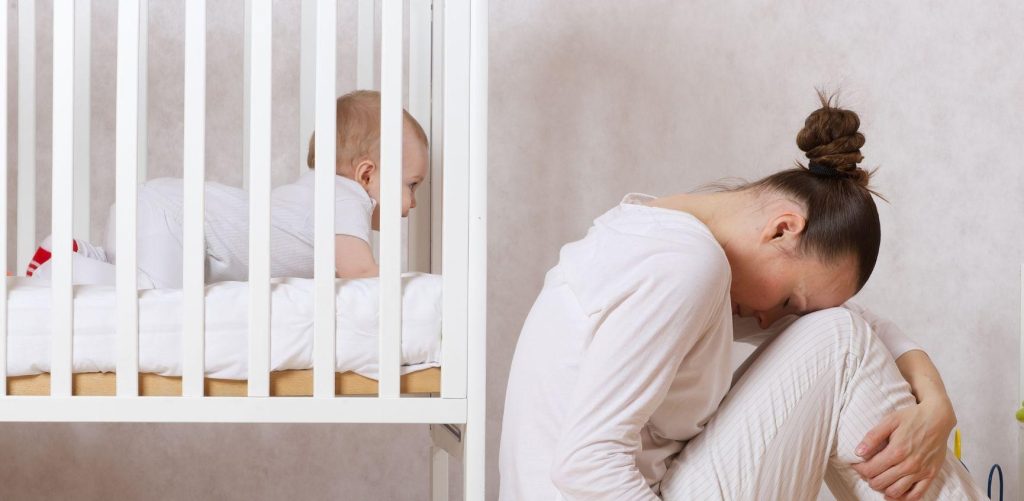HOW TO HELP SOMEONE WITH POSTPARTUM DEPRESSION

WHAT IS POSTPARTUM DEPRESSION:
Exhaustion, difficulty bonding with the baby, severe mood swings, and changes in eating or sleep patterns are not signs of weakness, but rather that your body and brain need postnatal support.
HOW TO IDENTIFY POSTPARTUM DEPRESSION?
Hormonal changes, physical exhaustion, and emotional stress are just a few of the numerous underlying causes of PPD. Clinically speaking, PPD symptoms can vary greatly and include:
- Prolonged sadness or hopelessness
- Extreme mood swings
- Extreme fatigue or low energy
- Maternal Anxiety/ persistent worry about the newborn
- Fear of missing out (FOMO) Fear of missing out
- Unable to establish a connection with the baby
- Withdrawal from family
- Change in eating or sleeping patterns
- Incapacity to concentrate or form opinions
WHY ADDRESSING PPD IS CRUCIAL:
Ignoring postpartum depression can have profound consequences for both the mother and her child. When left untreated, PPD can lead to prolonged emotional distress, difficulties in nurturing the baby, and strained relationships with family members. The baby’s emotional and cognitive development may also be affected if the mother struggles to engage or bond. However, addressing PPD isn’t just about alleviating symptoms; it’s about being empathetic and prioritizing maternal mental health. Through treatment, mothers can rediscover their emotional stability and strengthen their connection with their baby, creating a foundation for a healthier future.
DEALING WITH POSTPARTUM DEPRESSION:
A customized strategy that incorporates postnatal self-care, professional help, and a solid support network is necessary to overcome postpartum depression. I suggest the following tactics:
1. Seek Professional Assistance:
Therapy is a vital component of treating postpartum depression (PPD). For some individuals, medications like antidepressants may also be necessary. It is important to ensure that these medications are effective, especially for nursing mothers, and this should be done under the supervision of a qualified mental health professional. Research in 2022 supports the effectiveness of Cognitive Behavioral Therapy (CBT) in reducing depressive symptoms in the general postpartum population. CBT works by helping individuals reframe negative thought patterns and develop emotional intelligence and self-awareness.
2. Sleep Regulation:
A 2023 study on preventing the recurrence of postpartum depression highlights that sleep and circadian dysregulation are well-documented features and risk factors associated with postnatal depression. Targeting insomnia and sleep loss could be effective in preventing postpartum depression in some women. Given the emerging evidence linking sleep loss to suicidal thoughts, addressing insomnia is also crucial from a safety perspective. The literature suggests that focusing on insomnia and sleep loss may help prevent postpartum depression in certain individuals.
3-Nutrition & Physical Activity:
A 2021 analysis reviewed 25 studies focused on nutrition and physical activity interventions designed to alleviate postpartum depression. The findings concluded that, when implemented with appropriate strategies, both healthy eating and physical activity are promising options for managing maternal mental health after childbirth.
3. Mindfulness and Relaxation:
Self-care is essential for new mothers. It involves allowing time to rest and ensuring emotional well-being after pregnancy by gradually incorporating yoga or meditation into daily routines. The advantages of mindfulness practices are stress management and living in the present moment. As a therapist, we guide clients through relaxation techniques like deep breathing, progressive muscle relaxation, and guided meditation.
A WORD FROM MENTAL NURTURING:
Epidemiological data reveals that depression is emerging as a significant health and social concern in contemporary society. The World Health Organization (WHO) estimates that around 350 million individuals are grappling with depression globally, making it the second most prevalent cause of disability in Europe, surpassed only by ischemic heart disease. This staggering statistic underscores the pervasive nature of this mental health condition and its profound impact on individuals’ lives.
One particular variant of depression that warrants urgent attention is postpartum depression. This insidious condition affects new mothers, manifesting in feelings of profound sadness, anxiety, and exhaustion that can overshadow the joy of motherhood. Early detection and intervention are crucial, as the road to recovery from postpartum depression demands immense courage, unwavering resilience, and a robust support system. Partner’s loyalty and attention is crucial in reducing postpartum stress and anxiety. It's important to allow the maternal body to regain its shape naturally and to refrain from any body shaming remarks.
It’s vital to understand that experiencing postpartum depression does not define your worth as a mother or as an individual. In fact, seeking help is an empowering step toward breaking the stigma of mental health. With the right diagnosis and support, recovery is not only possible but highly achievable. Together, we can foster a nurturing environment where both you and your baby can flourish, paving the way for a healthier and brighter future.
RESOURCES:
1- Dominiak M, Antosik-Wojcinska AZ, Baron M, Mierzejewski P, Swiecicki L. Recommendations for the prevention and treatment of postpartum depression. Ginekol Pol. 2021;92(2):153-164. doi: 10.5603/GP.a2020.0141. Epub 2021 Jan 15. PMID: 33448014.
2- Postpartum depression | Office on Women’s Health. (n.d.). OASH | Office on Women’s Health.
https://www.womenshealth.gov/mental-health/mental-health-conditions/postpartum-depression
3- Website, N. (2024, January 11). Overview - Postnatal depression. nhs.uk.
https://www.nhs.uk/mental-health/conditions/post-natal-depression/overview/
4- Gopalan P, Spada ML, Shenai N, Brockman I, Keil M, Livingston S, Moses-Kolko E, Nichols N, O'Toole K, Quinn B, Glance JB. Postpartum Depression-Identifying Risk and Access to Intervention. Curr Psychiatry Rep. 2022 Dec;24(12):889-896. doi: 10.1007/s11920-022-01392-7. Epub 2022 Nov 23. PMID: 36422834; PMCID: PMC9702784.

Written by:
Rumsha Abdul Aziz, MS Psychology,
On May 02, 2025

